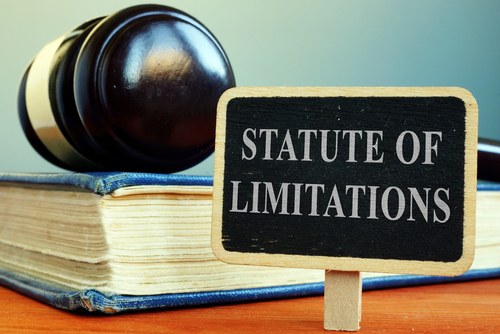Like all other civil claims, medical malpractice claims in Florida are subject to the statute of limitations. The statute of limitations is a time limit that a claimant has to file a lawsuit in court against the party or parties they wish to pursue their legal claims against. Once the statute of limitations expires on a particular legal claim, that claim is considered extinguished. If the claimant tries to file a lawsuit in court, the other side in the case can move to have the suit immediately dismissed.
What Is the Statute of Limitations on Medical Malpractice Lawsuits in Florida?
In Florida, the statute of limitations on medical malpractice claims normally gives an injured patient two years from the date on which they were harmed by negligent care to file a lawsuit against the providers responsible for rendering that care. Of course, in many cases, a patient may not be initially aware that they have been harmed by negligent care or aware that the harm they have suffered was caused by their provider. As a result, the two-year limitations period may not be considered to have started running until the patient discovers (or should have discovered through reasonable diligence) the facts and circumstances underlying their claim.
However, in Florida, medical malpractice claims are also subject to a statute of repose. A statute of repose is another time limit on a claim, after which a claim is considered to be permanently extinguished regardless of whether or not a patient is aware of the information underlying their medical malpractice claim. Under Florida law, there is a four-year statute of repose for medical malpractice claims, or a seven-year period in cases involving intentional fraud or concealment by a negligent provider.
Different limitations periods apply to medical malpractice claims of children harmed before the age of eight.
What Is Medical Malpractice?
Not all adverse outcomes of medical treatment mean that medical malpractice has occurred. Instead, a healthcare provider commits medical malpractice only when they render treatment that fails to comply with the applicable standard of care and a patient is harmed and suffers compensable losses as a result of that substandard treatment. The standard of care differs in each patient’s case but is generally defined as the treatment actions and decisions that other healthcare providers of similar training and experience would undertake in identical or similar circumstances. In other words, the law will not hold a medical provider liable for an adverse outcome when other providers would have acted the same way in treating that patient.
How the Statute of Limitations Makes Pursuing Medical Malpractice Claims Difficult
Investigating a medical malpractice claim is a complex, time-consuming process. This can cause complications with the statute of limitations requiring that a lawsuit be filed by a certain date to prevent an injured patient from losing their claim. For example, medical malpractice claims usually require hiring a medical expert to prepare a report to explain what the standard of care was in the patient’s case and how their provider’s actions failed to comply with that standard. If an injured patient waits until the expiration of the limitations period begins to approach, they may leave themselves too little time to properly prepare their claim before it must be filed in court. This makes it important for people who believe they may have been harmed by negligent medical care to speak to a medical malpractice lawyer as soon as possible.
Contact A Medical Malpractice Attorney for a Consultation About Your Case in Florida
Were you or a loved one injured due to medical malpractice in Florida? Then you need to talk to an experienced medical malpractice lawyer as soon as possible for guidance on how to proceed. The Fort Lauderdale medical malpractice attorneys at Lawlor, White & Murphey are prepared to assist you with your legal claim. We represent victims of negligent surgeons, doctors, nurses, and pharmacists throughout Florida, including Pembroke Pines, Pompano Beach, Plantation, and Coconut Creek. Call us today at (954) 525-2345 or fill out our online contact form to schedule a consultation. Our main office is located at 2211 Davie Blvd., Fort Lauderdale, FL 33312, and we also have offices in Pembroke Pines, Weston, Coconut Creek, Plantation, and Pompano Beach.
The articles on this blog are for informative purposes only and are no substitute for legal advice or an attorney-client relationship. If you are seeking legal advice, please contact our law firm directly.

